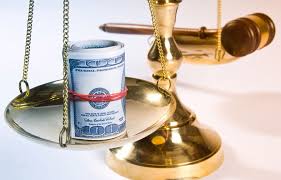Peculiarities of recovery of non-pecuniary damage in Ukraine
Introduction
Recovery of non-pecuniary damage is a complex and multifaceted legal category that is of significant practical importance in Ukrainian law. Unlike pecuniary damage, non-pecuniary damage relates to the non-property rights and interests of a person and includes violations of such rights as honor, dignity, business reputation, mental or physical health. In this article, we will analyze the main features of recovery of moral damages in Ukraine, including legal grounds, criteria for determining the amount of compensation and procedural aspects.
The main part
Legal grounds for recovery of non-pecuniary damage
Pursuant to Article 23 of the Civil Code of Ukraine (CCU), non-pecuniary damage consists of physical and mental suffering suffered by a person as a result of a violation of his or her rights. The grounds for recovery of non-pecuniary damage may include:
- Violation of non-property rights (Article 270 of the Civil Code);
- Violation of property rights that resulted in moral suffering (Article 1167 of the Civil Code);
- Causing harm to health or life (Article 1168 of the Civil Code);
- Violation of the right to privacy (Article 301 of the CCU).
Criteria for determining the amount of compensation
Determining the amount of compensation for non-pecuniary damage is one of the most difficult tasks in court practice. Ukrainian legislation does not contain clear criteria for determining the amount of compensation, which gives courts considerable discretion in resolving these cases. The main criteria used by the courts are:
- The nature and duration of moral suffering;
- The depth of physical or mental suffering;
- The degree of guilt of the offender;
- Public danger of the act;
- Other circumstances of material importance (Article 23 of the Civil Code).
You may also be interested in the following articles: advice of a lawyer, legal advice, analysis of documents, legal analysis of the situation, written advice, verification of documents by a lawyer, lawyers documents, online legal advice, online lawyer, legal opinion, legal opinion of a lawyer, lawyer online.
Procedural aspects
The procedural regulation of recovery of non-pecuniary damage involves several important stages:
- Filing a statement of claim: The plaintiff must clearly substantiate the grounds for recovery of non-pecuniary damage and provide evidence to prove the fact of damage and its amount.
- Evidence: During the trial, the court examines the evidence provided, including testimony, medical reports, expert opinions, etc. It is important to confirm the fact of moral suffering and its causal connection with the defendant's actions.
- Decision-making: The court, taking into account all the circumstances of the case, determines the amount of compensation for non-pecuniary damage. It is worth noting that courts often use analogy and take into account decisions in similar cases to determine the amount of compensation.
Conclusion.
Recovering non-pecuniary damage in Ukraine is a complex and multifaceted process that requires a careful approach to substantiating claims and providing evidence. Ukrainian legislation provides courts with considerable discretion in determining the amount of compensation, which, on the one hand, ensures an individual approach to each case, and on the other hand, may lead to ambiguous decisions. Lawyers dealing with non-pecuniary damage cases need to have a good understanding of both the law and case law to effectively protect their clients' interests.

































